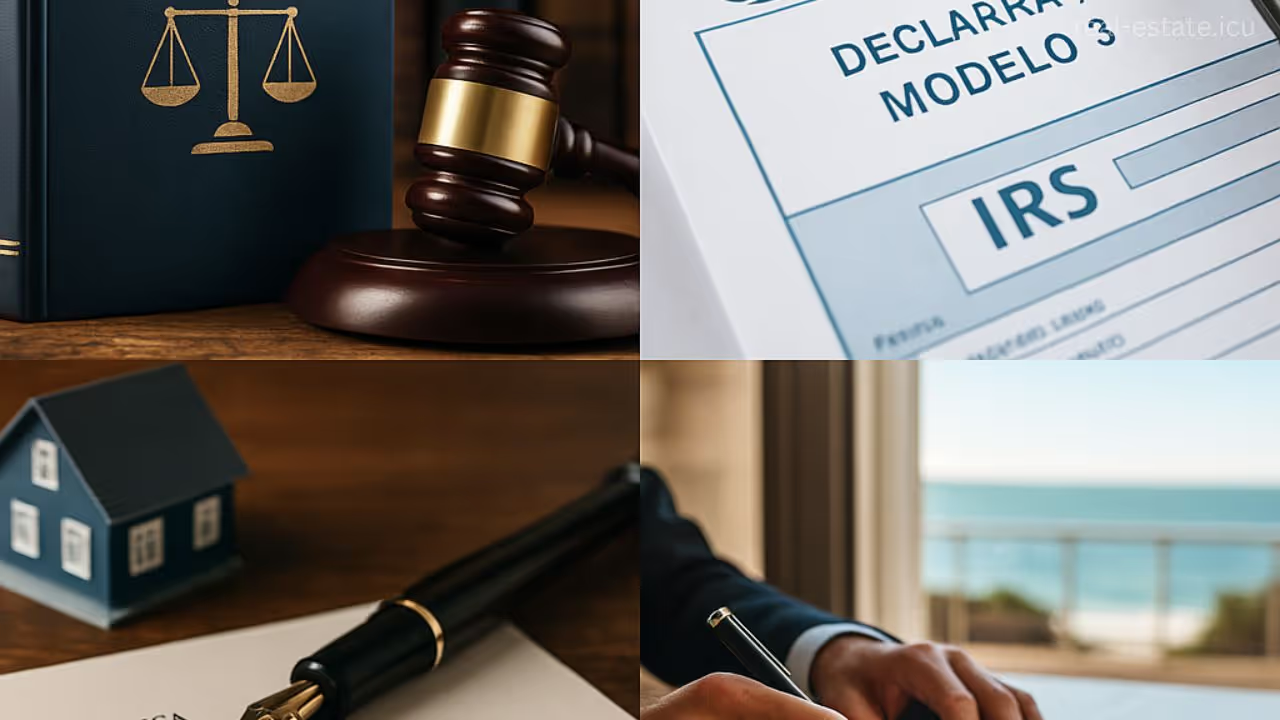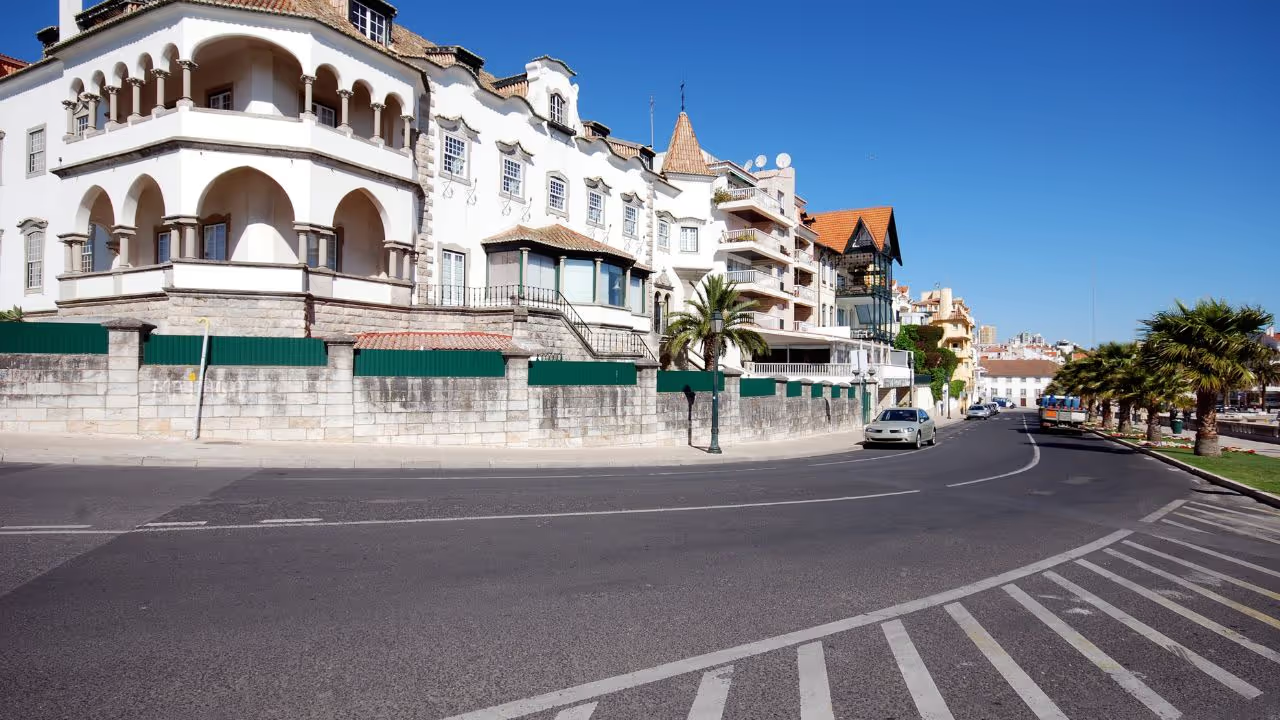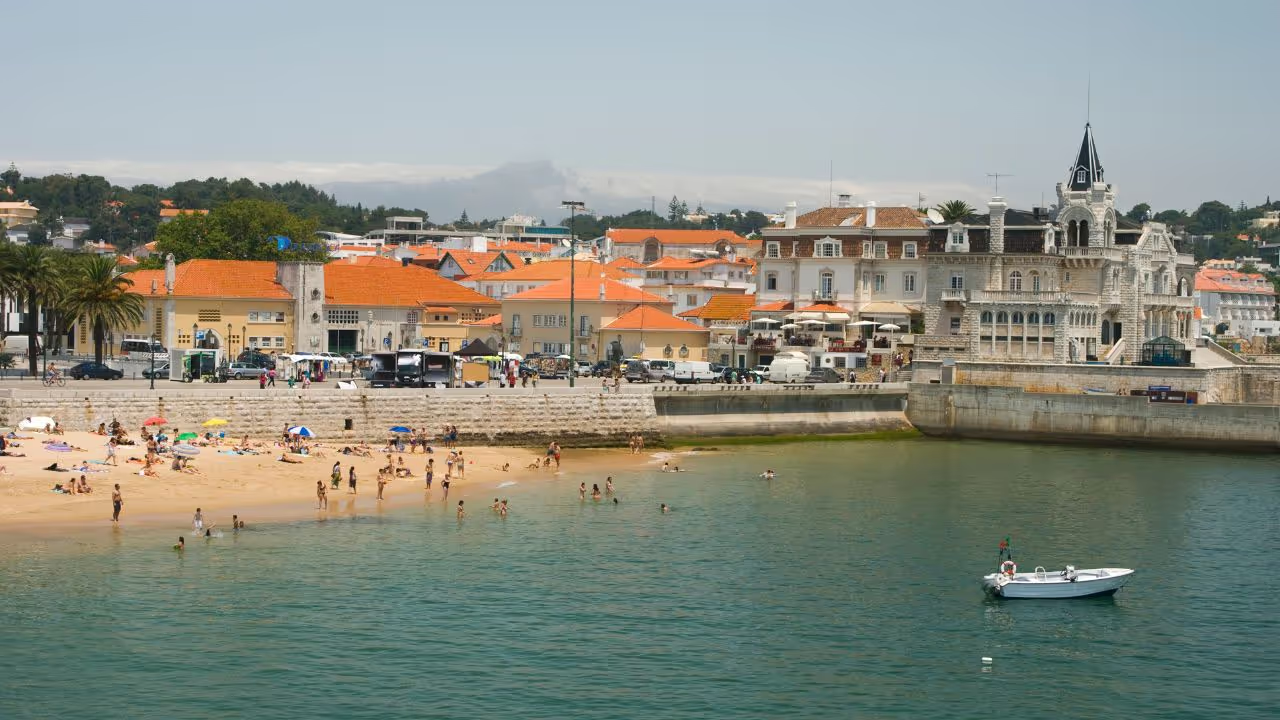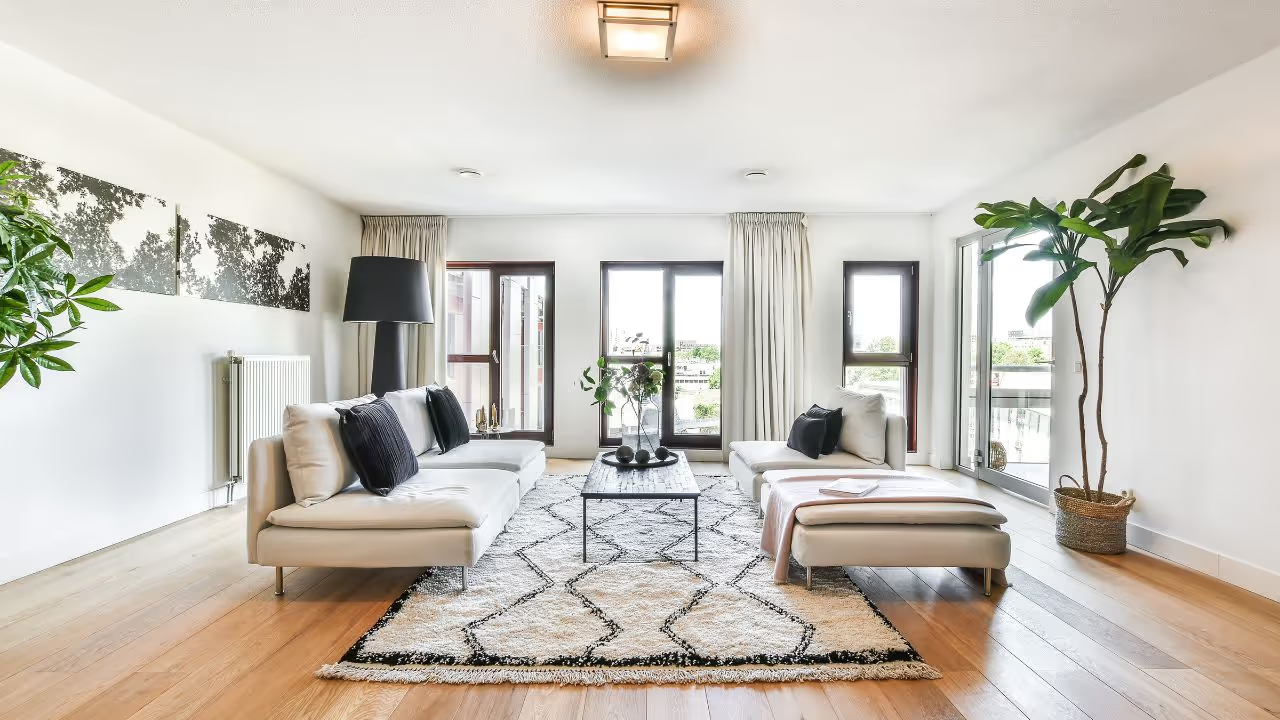Manage Your Property Purchase in Cascais

Buying smart in Cascais means more than finding the right place: it’s guiding the process end to end. Below is an SEO-optimized, non-formulaic guide with varied paragraph lengths, small colloquial slips, anchor links to relevant internal pages, a few outbound citations, and five main sections (~300–500 words each). Images illustrate interiors, waterfront views, renovation, and local architecture.
1. Preparing to Buy: Initial Steps and Planning
Buying in Cascais usually begins with a mix of excitement and questions: Which neighbourhood fits? What legal steps matter? How to budget beyond the listing price? First, get a broad sense of Cascais micro-markets: Cascais Central’s historic vibe, Guia’s seaside promenade, Estoril’s elegant flair, Birre or Alcabideche suburbs for villas. Browsing neighbourhood pages helps: Cascais Central neighbourhood, Guia neighbourhood, or Birre neighbourhood.
Next, clarify your purpose: vacation home, rental investment, permanent residence, or a mix. That shapes budget, location, and type (apartment vs villa). Research costs: beyond purchase price, factor IMT, stamp duty, notary fees, lawyer fees—see Documents & Taxation. For investment intent, review Buy to Invest guidance; for relocation, Buy to Relocate.
Early on, obtain your NIF (tax number) and open a Portuguese bank account, even if remote—some banks allow initial remote setup but often arrival is smoother (portugalxpert.com). With NIF, you can engage lawyers and agents officially. Speaking of agents: a buyer’s agent familiar with Cascais can surface off-market deals and guide on fair pricing; see Why a Buyer Agent. Even if browsing solo, once serious, formalize representation to avoid overlaps.
Budget realistically: include renovation or furnishing costs if property needs updating. If planning rental short-term or long-term, check regulations (Alojamento Local licensing) early—violations cause fines. For initial market data, outbound sources note Portugal has open purchase rules for foreigners with no nationality restrictions (globalcitizensolutions.com).
Finally, set a timeline: property hunts may take weeks or months; legal and tax steps add weeks. Plan visits at varied times (weekday/weekend; season vs off-season) to gauge noise, light, and neighbourhood feel. Maintain a simple spreadsheet of candidates, noting pros/cons and next actions. This prep phase lays groundwork for smoother Step-by-Step process.
2. Step-by-Step Purchase Process in Cascais
A clear sequence helps manage the purchase without surprises. The main steps: property search, due diligence, promissory contract, financing arrangements, final deed, and registration.
-
Property search & viewings With criteria set, have your buyer’s agent shortlist properties—on-market and off-market. If remote, agents preview first or arrange virtual tours. In person, visit at different times: morning light in a Cascais Central apartment, evening noise near marina, weekend traffic around Guia. Note layout quirks or renovation needs.
-
Legal due diligence Engage a qualified Portuguese lawyer early. They check title deeds at Conservatória do Registo Predial, confirm no liens or mortgages, and verify planning compliance with Câmara Municipal. For older buildings (e.g., historic façades in Cascais Central), check heritage restrictions. Power of Attorney may be arranged if you can’t be present for all steps (tagusproperty.com).
-
Financial preparation Ensure financing: if using mortgage, get pre-approval from Portuguese bank or foreign lender. Have proof of funds for deposit. Calculate purchase costs: IMT (progressive up to ~8%), stamp duty (
0.8%), notary/registration fees (€1,000–€3,000), lawyer/tax advisor fees. Use Buying in Cascais guide and Manage Purchase pages for process overviews. -
Promissory Contract (CPCV) Once price agreed, draft Contrato de Promessa de Compra e Venda. Typically 10–30% deposit paid. The contract sets conditions: financing approval window, inspection clauses, deadlines. Lawyer ensures terms protect you (e.g., return of deposit if financing denied). This binding step commits both sides.
-
Inspections and conditions After CPCV, arrange surveys: structural, electrical, plumbing. Identify renovation scope and budgets. If issues arise, renegotiate or include repair obligations in final contract.
-
Final deed (Escritura Pública) On signing day at notary, funds transfer: remaining balance via bank transfer, plus IMT and stamp duty proof. Notary verifies IDs and documents. After signing, notary registers deed.
-
Registration & post-signing tasks Lawyer registers property in your name in Land Registry. Update tax authority records for IMI billing. If rental, register for Alojamento Local license early. Notify utility providers to set accounts in your name. Consider change-of-address registrations if residency.
Throughout, maintain clear communication with agent, lawyer, and bank. Use checklists and calendars to track deadlines: deposit deadlines, financing approval, contract expiry. This structured sequence keeps process transparent and reduces last-minute stress.
3. Financing, Tax & Fiscal Considerations
Understanding fiscal aspects early avoids budget overruns. Key areas: financing options, purchase taxes, ongoing taxes, and incentives.
-
Financing Portuguese banks lend to residents and non-residents, often up to 60–70% LTV for non-residents. Compare offers and pre-approve before viewing. Mortgage approval requires NIF, proof of income, bank statements, and often a local employer or guarantor for residents. Interest rates vary; fixed vs variable terms should be weighed. Consider currency exchange risks if income in foreign currency.
-
Acquisition taxes & fees IMT (transfer tax) is progressive: primary residences up to certain value may benefit from reduced rates; investment or second homes taxed at standard scale (seatoskyhomes.pt). Stamp duty (~0.8%) and notary/registration fees add
2% of price. Lawyers and tax advisors charge fees (€1,500–€4,000) for due diligence and tax planning. New builds may include VAT (IVA 23%)—verify if price includes it. -
Ongoing taxes Annual IMI based on cadastral value, typically 0.3–0.45% in Cascais (expatica.com). High-value portfolios pay AIMI (additional IMI) above thresholds. If renting, declare rental income: non-residents taxed flat 28%, residents taxed progressively after deductions (see Landlord guide). Plan for capital gains tax on resale; primary residence reinvestment rules may apply.
-
Residency and tax regimes If relocating, consider Non-Habitual Resident (NHR) or new Incentivised Tax Status regime; timing matters. For investment-only buyers, residence permit may not be needed, but tax residency rules affect declarations. Consult tax advisor via Documents & Taxation.
-
Budgeting renovations For properties needing updates, allocate funds for permits, architect fees, builder costs, and unexpected issues (e.g., structural repairs). Sea air can affect maintenance needs over time. Plan cash reserves for ongoing maintenance (pool, garden, façade upkeep).
Link with Buy to Invest for deeper investment structuring. Using a buyer’s agent can help estimate total costs and avoid surprises.

4. Renovation, Furnishing & Project Management
Many Cascais properties need some updating or styling, whether for personal living or rental appeal. Managing renovation well ensures time and cost control.
-
Assessing renovation scope After purchase and inspections, outline needed works: structural fixes, kitchen/bath updates, energy efficiency upgrades (insulation, windows), cosmetic touches. For historic buildings, verify heritage rules with Câmara Municipal. For major works, hire a licensed architect to draft plans and secure permits.
-
Hiring professionals Use local networks: architects familiar with Cascais regulations, reliable builders, and trades (electricians, plumbers). Ask for references or past project examples. Consider a project manager if you’re remote or lack local oversight capacity. They coordinate schedules, budgets, and quality checks.
-
Permits and approvals Simple cosmetic changes often need no permit, but layout alterations or extensions require Câmara authorization. Energy upgrade incentives or EU funds may offset costs; check municipal or national programs. Factor approval timelines into project plan.
-
Furnishing strategy For personal use, reflect your style but favor durable, easy-to-maintain pieces. For rentals, choose neutral, functional décor. Prioritize quality beds, linens, kitchen essentials, fast Wi-Fi, and comfortable seating. In seaside locales, use materials suited to humid conditions.
-
Budgeting & timelines Create detailed cost estimates with contingencies (~10–15%). Schedule works in off-peak seasons if possible to avoid material delays. For rental properties, time renovations between bookings. Maintain a timeline with milestones: permit approval, structural works, finishes, furnishing, and photoshoot.
-
Sourcing materials Local suppliers for tiles, fixtures, and furniture can offer quality and authenticity; combine with online options for certain items. Sustainable choices may add upfront cost but reduce long-term bills.
-
Project oversight Regular check-ins—onsite visits if local or video calls—help catch issues early. Use simple project management tools or spreadsheets to track tasks, costs, and deadlines. Keep documentation: contracts, invoices, warranties.
-
Photography & staging After renovation, professional photos showcase light, views, and finishes—important for selling or renting. Staging adds appeal: small plants, local artwork, neatly arranged spaces. Link to Vacation Rental Services if planning holiday lets.
5. Post-Purchase Management & Ongoing Support
Once property is yours and ready, ongoing management ensures smooth ownership and maximizes value.
-
Utility setup & registrations Transfer utility accounts (electricity, water, internet) to your name. For rentals, set billing processes to handle variable usage. Register property for IMI billing; check deadlines to avoid fines.
-
Insurance & safety Obtain home insurance covering fire, flood, and liability (especially for rentals). For older buildings, ensure coverage includes structural risks. Install safety features: smoke detectors, emergency instructions for guests.
-
Property management For rental properties, choose between self-managing or hiring property managers. Self-manage if local and hands-on; otherwise, a local agency handles bookings, guest check-ins, maintenance, and emergencies. See Vacation Rental Services and Landlord guide.
-
Maintenance scheduling Regular checks: plumbing, electrical, pool, garden or façade (sea air effect). Schedule annual inspections to prevent costly repairs. Keep a contact list: electricians, plumbers, cleaners, gardeners. For personal homes, periodic visits or a caretaker service helps if you’re away.
-
Tax filings & financial reviews File rental income declarations on time; pay IMI annually. Review performance if renting: occupancy, revenue vs costs. For investments, adjust strategy: maybe switch to longer-term leases in off-season. Consult accountant for changes in tax laws.
-
Market monitoring & resale planning Track Cascais market conditions if planning eventual resale. Good buyer’s agent or local advisor can alert you to market shifts. Small upgrades (kitchen refresh, fresh paint) before sale can boost value.
-
Community integration For personal residences, engage local community: neighbour introductions, local associations, and events. This can aid property security (neighbors noticing issues) and enrich your experience.
-
Ongoing advisory relationships Keep contacts: lawyer for occasional legal queries, tax advisor for regime changes, and buyer’s agent for new opportunities or portfolio expansion. Use Contact us to connect with experts.
-
Documentation & records Store deeds, contracts, renovation records, warranties, insurance policies in organized folders (physical and digital). Set calendar reminders for renewals: insurance, licenses, tax deadlines.
-
Exit strategies If circumstances change, consider resale or different rental models. Early planning ensures you can pivot—market readiness, staging, and timing matter. Advisors help craft exit approaches aligned with market cycles.
Frequently Asked Questions
-
What initial documents do I need before buying in Cascais? Essential: passport, Portuguese NIF, proof of funds, financing pre-approval if mortgage, and engagement letter with buyer’s agent or lawyer. For foreigners, fiscal representative may be needed for NIF.
-
How long does the purchase process take? From offer to deed typically 4–8 weeks once contract signed and funds ready. Entire search and negotiation may take months depending on market and preferences.
-
Can non-residents get mortgages in Portugal? Yes, Portuguese banks lend to non-residents often up to 60–70% LTV. Requirements: NIF, income proof, bank statements, and sometimes additional guarantees. Compare offers early.
-
What fees and taxes should I budget? IMT (0–8% progressive), stamp duty (
0.8%), notary/registration (€1,000–€3,000), lawyer/tax advisor (~€1,500–€4,000), and possible VAT on new builds (23%). Factor renovation and furnishing costs separately. -
Do I need permits for renovations? Simple cosmetic works may not need permits. Structural changes, extensions, or heritage-related works require Câmara approvals and architect involvement. Always check local regulations.
-
How to find reliable local professionals? Ask buyer’s agent or local contacts for recommended lawyers, architects, and contractors. Check track records and past project examples. Personal referrals often best.
-
What ongoing costs after purchase? Annual IMI (0.3–0.45%), utilities, condominium fees if applicable, maintenance (pool, garden, façade), insurance, and tax filing costs. For rentals, cleaning and management fees also apply.
-
Can I manage my Cascais property remotely? Possible with good local contacts: property managers for rentals, caretakers for maintenance, and remote monitoring tools (smart home). Regular visits or a local representative recommended.
-
How to handle unexpected issues? Maintain contingency funds for emergencies (roof leaks, plumbing). Have local emergency contacts. Insurance cover and a caretaker or property manager help address issues swiftly.
-
When to consider selling? Monitor market: if prices peak or personal circumstances change, consult buyer’s agent for advice on timing, staging, and pricing. Early planning helps maximize sale value.
 Services
Services  Services
Services  Services
Services  Services
Services 
